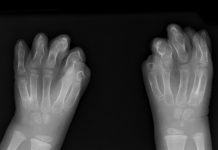Elderly people, especially women are more prone to fractures and bone loss.
Elderly women are susceptible to fractures and bone loss due to menopause. In menopausal women, hormonal changes occur and calcium leaks out of the bones.
Bone loss can lead to thin bones and can result in osteoporosis.
In people with osteoporosis, bones become weak and break easily. Bones in the spines are mainly affected and leads to tiny compression or crush fractures.
Due to bone loss, even simple house hold tasks can produce spine fractures as the bones will be in weak condition.
The researchers found that where patients were keeping to their dosing regimen correctly the risk of fracture was 24% lower. They also found that doses higher than 1200 mg lowered fracture risk more, compared to doses of under 1200mg. Protection from fracture was also greater when Vitamin D was also taken at doses of 800 international units (IU) or more, compared to lower doses.
For related information on reduced bone loss due to calcium supplements, visit:
Bone loss can result from different conditions. Here are some of the conditions from which fractures and bone loss occur.
Conditions from which bone loss occurs:
Bone loss can result from the decrease in estrogen at menopause stage. When a woman is under menopausal stage, estrogen loss occurs which interferes with absorption of calcium and trabecular bone loss results faster than normal. Slowly, the outer shell of the bone that is cortical is also lost.
Senile bone loss or osteoporosis occurs in men and women. Due to aging, cortical and trabecular bone loss occurs because of decrease in bone cell activity. The decrease in bone cell activity also results from low intake of calcium and low levels of vitamin D which is mostly seen in elderly people.
Some underlying conditions such as hypogonadism, chronic renal disease, gastrectomy, and hyperthyroidism can cause fractures and bone loss.
Prevent fractures and bone loss with calcium:
Eat lots of calcium containing foods for osteoporosis treatment. If calcium intake is low consistently, it can result in high fracture rates and low bone mass. Good sources of calcium include yoghurt, milk, cheese and green leafy vegetables such as spinach and broccoli. Include fish like salmon and sardines. Women at menopause should consume 1000mg of calcium everyday.
If calcium intake is not possible through food, supplements can help. But, remember that supplements should be taken along with food to increase their absorption. Don’t rely only on supplements without proper diet.
Expose to sun to get vitamin D, as it helps in absorbing calcium. If elderly people cannot get outdoors, they should take vitamin D supplements.













